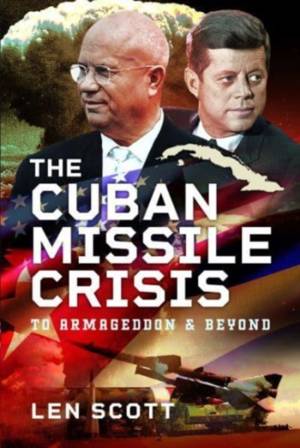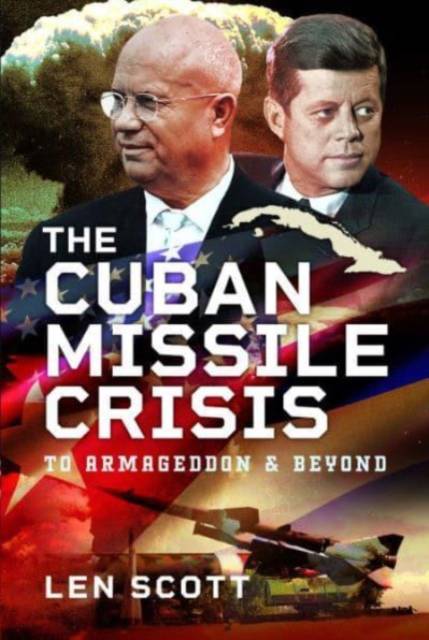
- Retrait gratuit dans votre magasin Club
- 7.000.000 titres dans notre catalogue
- Payer en toute sécurité
- Toujours un magasin près de chez vous
- Retrait gratuit dans votre magasin Club
- 7.000.0000 titres dans notre catalogue
- Payer en toute sécurité
- Toujours un magasin près de chez vous
34,95 €
+ 69 points
Description
"This book is an outstanding contribution to the ever-growing literature on the truly historic set of events making up the 'Cuban missile crisis'. While experts on the crisis will be familiar with many of the issues confronted, they will discover probably the best-written account of them, will surely learn something new, and be asked to question what they had come to think was settled."
-- Ken Booth FBA, Distinguished Research Professor, Aberystwyth University
It is sixty years since the events of October 1962 brought the world close to nuclear catastrophe. The Cuban missile crisis has long been recognized as the moment of greatest danger in the life (and near death) of humanity. In those sixty years, our knowledge and understanding of events have undergone significant change. There are some reasons to be encouraged, inasmuch as we have learned how both President John F. Kennedy and Premier Nikita Khrushchev sought to avoid nuclear war.
More ominously, we have learned of incidents and events that suggest nuclear weapons might have been used by subordinate military commanders, in circumstances frequently unknown to their political leaders. Decisions whether to use nuclear weapons lay in the hands of often junior military commanders, some of whom were perilously close to crossing the nuclear threshold. This does not mean - as often assumed - that if some nuclear weapons were used, escalation to all-out war was inevitable. Yet the undoubted risk of thermonuclear war in these circumstances threatened the very survival of civilization. Hundreds, if not thousands, of millions of people would have died from immediate and short-term effects, while the longer-term prospect of a 'Nuclear Winter' portended the virtual extinction of humanity.
Drawing lessons from sixty years ago faces significant challenges. If we draw lessons only to discover our understanding was mistaken, we might well have drawn the wrong lessons. Many received wisdoms about the crisis have been shown to be misleading. What is striking is how after forty or fifty or even sixty years, new evidence has emerged to challenge previously accepted explanations.
It is for the reader to reach their own verdicts on the history of the crisis, and how much we owe to political leaders who averted catastrophe (as well as how their words and deeds helped create the crisis in the first place). It is for the reader to conclude how close we came to nuclear war. Whatever conclusions are reached, one overriding lesson looms large. However we judge the actions of political and military leaders, one factor was crucial in why we avoided nuclear war in 1962. It was luck. In October 1962, humanity was very lucky. Will we be so lucky next time?
-- Ken Booth FBA, Distinguished Research Professor, Aberystwyth University
It is sixty years since the events of October 1962 brought the world close to nuclear catastrophe. The Cuban missile crisis has long been recognized as the moment of greatest danger in the life (and near death) of humanity. In those sixty years, our knowledge and understanding of events have undergone significant change. There are some reasons to be encouraged, inasmuch as we have learned how both President John F. Kennedy and Premier Nikita Khrushchev sought to avoid nuclear war.
More ominously, we have learned of incidents and events that suggest nuclear weapons might have been used by subordinate military commanders, in circumstances frequently unknown to their political leaders. Decisions whether to use nuclear weapons lay in the hands of often junior military commanders, some of whom were perilously close to crossing the nuclear threshold. This does not mean - as often assumed - that if some nuclear weapons were used, escalation to all-out war was inevitable. Yet the undoubted risk of thermonuclear war in these circumstances threatened the very survival of civilization. Hundreds, if not thousands, of millions of people would have died from immediate and short-term effects, while the longer-term prospect of a 'Nuclear Winter' portended the virtual extinction of humanity.
Drawing lessons from sixty years ago faces significant challenges. If we draw lessons only to discover our understanding was mistaken, we might well have drawn the wrong lessons. Many received wisdoms about the crisis have been shown to be misleading. What is striking is how after forty or fifty or even sixty years, new evidence has emerged to challenge previously accepted explanations.
It is for the reader to reach their own verdicts on the history of the crisis, and how much we owe to political leaders who averted catastrophe (as well as how their words and deeds helped create the crisis in the first place). It is for the reader to conclude how close we came to nuclear war. Whatever conclusions are reached, one overriding lesson looms large. However we judge the actions of political and military leaders, one factor was crucial in why we avoided nuclear war in 1962. It was luck. In October 1962, humanity was very lucky. Will we be so lucky next time?
Spécifications
Parties prenantes
- Auteur(s) :
- Editeur:
Contenu
- Nombre de pages :
- 232
- Langue:
- Anglais
Caractéristiques
- EAN:
- 9781526779786
- Date de parution :
- 23-11-23
- Format:
- Livre relié
- Format numérique:
- Genaaid
- Dimensions :
- 155 mm x 234 mm
- Poids :
- 546 g

Les avis
Nous publions uniquement les avis qui respectent les conditions requises. Consultez nos conditions pour les avis.






